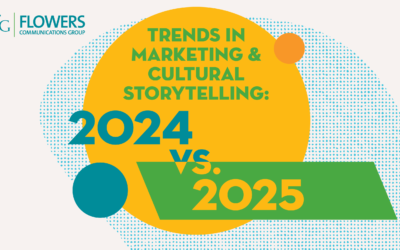When the Supreme Court ruled against affirmative action in college admissions, the decision stunned communities of color and their allies — people who have been invested in ensuring there’s a level playing field for those who have been historically marginalized and underrepresented in areas such as education and public accommodations.
But opponents of affirmative action aren’t stopping there. Their next target may be Diversity, Equity and Inclusion (DE&I) programs.
As various news outlets have reported, the Supreme Court’s ruling could be wielded to persuade companies against starting or maintaining any DE&I initiatives. The timing couldn’t be worse, as troves of Chief Diversity Officers and other key diversity staff have departed from workplaces or have had their positions eliminated. And in some states, such as Florida, elected officials are either amplifying their critiques of DE&I programs, advancing measures to outlaw them altogether, or applying pressure on corporations to halt their initiatives.
There’s a vital role that communications and marketing professionals must play in emphasizing the importance of companies staying the course — or, if a court challenge to workplace DE&I efforts prevails, strategically repositioning their programs.
It’s important to keep in mind that affirmative action was created to help remedy a legacy of discrimination and exclusion — one that has persisted in government, public services, and workplaces. There are countless laws, regulations and practices that have served to lock out people based on their identities, and consolidate power and wealth in the hands of a few: including Jim Crow, gender and racial pay disparities, and even subtle yet significant behaviors such as weeding out job applicants based on distinctively ethnic names and appearances like hairstyles or religious garments.
Affirmative action should ideally be a rallying point for solidarity amongst groups that have been historically discriminated against, yet it has oftentimes been used or viewed as a wedge. For example, various studies and reports have found that white women have benefited the most from affirmative action in education and workplaces, yet a majority of them oppose it. And in the most recent Supreme Court case, Asian American students and advocates were among the plaintiffs who claimed affirmative action policies worked against them — a move that was both strategic and deceptive.
At our agency, we encourage our clients to understand DE&I initiatives as a necessity rather than as an option or a luxury. When considering hiring practices, for example, clients can be counseled that it’s not a matter of whether diverse talent exists or is hard to find, but rather that traditional channels for recruiting or assessing qualifications weren’t designed with underrepresented groups in mind.
Without a diverse and diversity-minded workforce, companies can and will fail to tap into the purchasing power of marginalized groups that often sway cultural trends, which translate into buying decisions. For example, according to the National Association of Hispanic Real Estate Professionals, the median household wealth held by Latinos increased by 63.6% between 2016 and 2019, the highest wealth increase of all demographics. Yet, many Latinos continue to feel ignored by big brand names.
Companies may also repel people from engaging with their products and services because a demonstrable lack of cultural competence gives way to a negative reputation or brand associations. Rather than engaging consultants and agencies reactively when things go wrong, companies have an opportunity right now to be proactive about getting it right.
Here’s what some of the pros at Flowers Communications Group think about the recent developments on affirmative action:
“Today’s social justice movements have upended business as usual in Corporate America. Companies that once chose to sit out the tough conversations have been bold and innovative over the past few years. We can’t let the Supreme Court ruling turn back the clock on the tremendous progress that has been made in the realm of diversity, equity and inclusion since the murder of George Floyd.” – Michelle Flowers Welch, Chairman and CEO
“Diversifying student bodies means exposing students of color to careers and opportunities that they would not have had a chance to pursue otherwise. As a Mexican American woman, when I graduated from DePaul University, my first full-time PR internship class had six participants: all white women except for myself. This first experience of the lack of diversity in professional settings was extremely discouraging. With this recent ruling, I fear companies will put even less importance in diversifying their workforces, which is a grave mistake.” – Alejandra Mena, Media Relations Account Executive
“It seems as if, in an effort to avoid the perception of racism, inequity and social injustice, members of our U.S. government are looking to erase the racial lines. Doing so provides them the ability to turn a blind eye to inequalities that are highlighted as we look across the racial divides. Now, more than ever, as multicultural communicators, we need to lift collective and consorted voices to rally movement and change. Outrage is not enough. There must be action.” – Ena Wilson, Senior Account Executive
“Students of various ethnic groups will have a lot more trouble being accepted into schools because the system is pretty much working against them now. I feel that this is very unfortunate because an intelligent student with a bright future ahead of them shouldn’t be held back because of the color of their skin or their ethnicity. It feels like the country is reversing its progress with equal rights.” – Spencer Leak, Summer Intern
As FCG continues to bring awareness to such an important topic, we invite fellow communicators to engage in the conversation by joining us at the Public Relations Society of America – Chicago Chapter’s panel: The 3 Rs of DEI Communications. Attendees will have the opportunity to learn from an expert panel on how the 3 Rs: Relevant, Relatable and Real – can help guide communications best practices in a DEI initiative, including how affirmative action plays a role in DEI. The panel, hosted by FCG, will take place on Wednesday, August 30, 2023 at 5:30 p.m. at The Lighthouse located at 303 E. Wacker Dr., 30th Floor, Chicago, IL 60601. Register here to attend.
Jasmine Flowers Mazyck is Managing Director at FCG.




